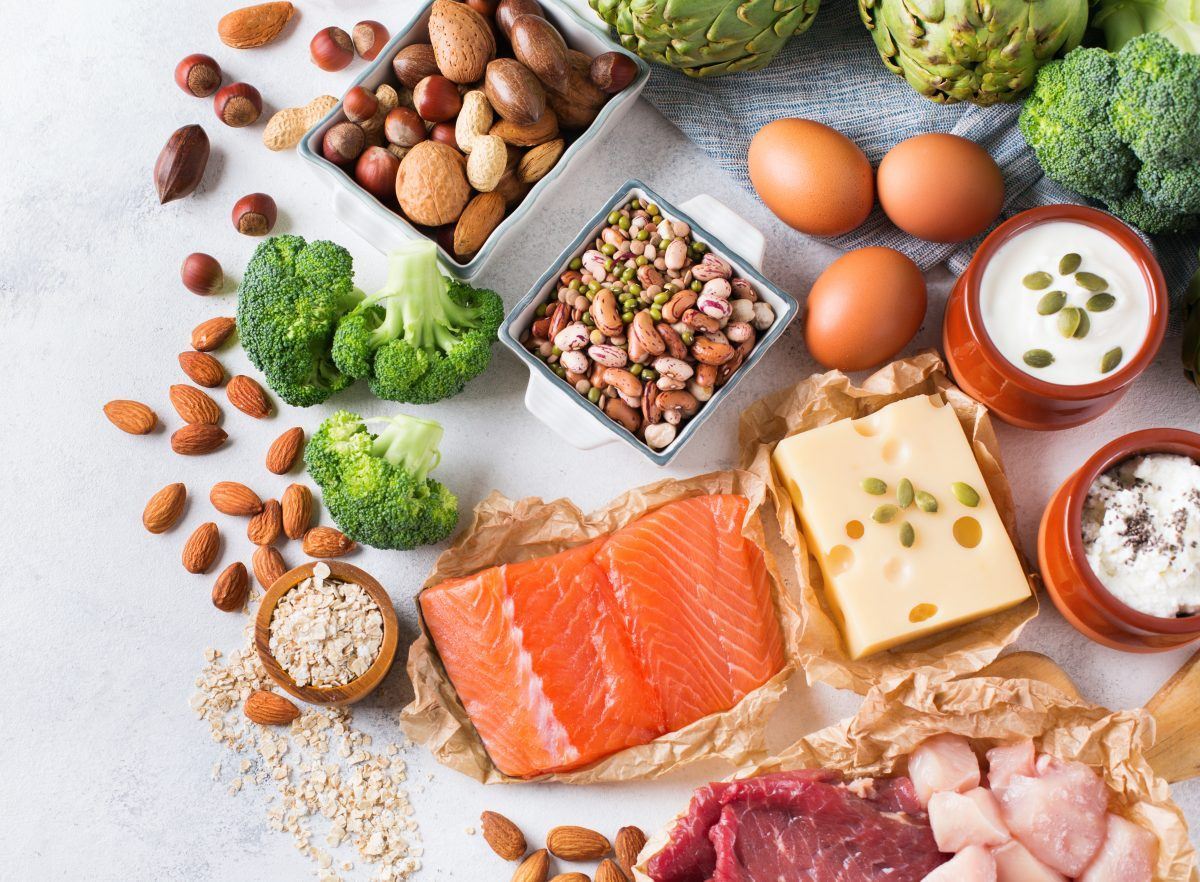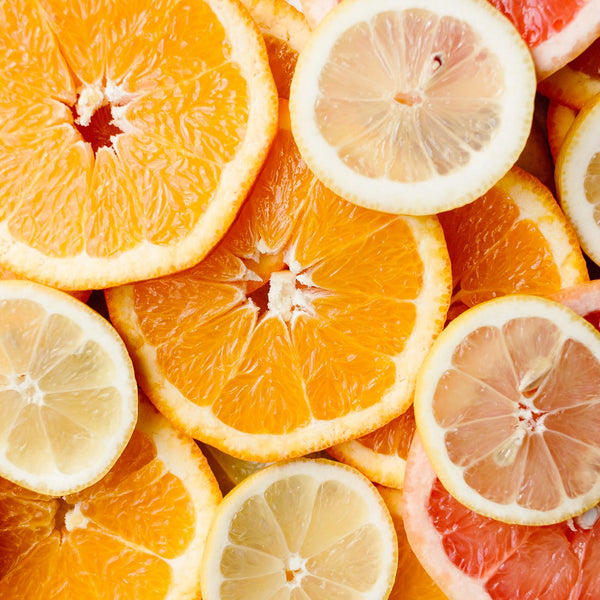
The Power of Protein – What Every Active Individual Needs to Know About the Most Spoken About Nutrient in the World
Sports nutrition is a constantly evolving field of science, and there’s no doubt eating a specific way enhances athletic performance and optimises training adaptations. This is especially true for protein consumption to improve muscular gain and training recovery.
What we know is every time you exercise, you create a stimulus for muscle growth and/or adaptation, and one way to measure this is through the pathway Muscle Protein Synthesis (MPS). MPS has been at the cornerstone of all research involving the assessment of active individuals and protein consumption, which so far has unequivocally been shown to enhance the MPS pathway (1).
There has been continued research and debate about the optimal amount of protein for athletes, however the amount is not the only thing you need to consider if you are active. The type of protein and how you time/distribute it across the day is also important (1-10). I have reviewed the most recent evidence and offer simple guidelines based on this and my experience as a Sports Dietitian.
Amount (1-10)
- For building and maintaining muscle mass, daily protein intake should be between 1.4–2.0 g/kg/d.
- Aiming for the higher amount in this range (1.7-2g/kg/d) is more suited to young and developing athletes, older (>50 years of age), or general population trying to gain lean muscle in a structured hypertrophy training program.
- Aiming for the lower amount in this range (1.4-1.7g/kg/d) is more suited for those who are active with a combination of activities that are not heavily focused on resistance training, or those competing in moderate volume endurance events or team-based sports.
- During periods of low-calorie intakes for physique goals focused on lowering body fat whilst maintaining muscle, higher protein intakes between 2.2g-3.1g/kg/d can help maintain muscle. It’s important to note that the art of maintaining lean muscle tissue while attempting to reduce body fat requires a well-structured diet, and an individually tailored resistance training program, that is periodised (graded approach over time and avoids chronic dieting and/or over training), by a professional coach in this space.
Quality
Essential Amino Acids (EAA) including the subgroup Branch Chain Amino Acids (BCAA) can enhance the pathway MPS. Leucine is a unique BCAA and by itself acts as direct signal to switch on the pathway of MPS, this is called the ‘Leucine Trigger’ and is between 700–3000mg of Leucine. Optimal amounts of EAA is between 10-12g (1-10) From my experience, a well-planned diet that focuses on protein quality and timing/distribution (see below) will give you enough EAA, BCAA and Leucine. There is no need to be adding more EAA or BCAA or Leucine supplements into your diet to hit a higher or specific amount as it does not provide a significant difference when met via the diet. Remember everything you need is packaged in food. It must be noted that animal-based protein sources contain higher amounts of EAA and BCAA than plant-based sources of protein however this does not mean you should only get your protein from meat, fish, poultry and dairy and avoid plant-based foods. They should, and need to complement each other, and including plant-based foods will improve your nutrition status by increasing your intake of vitamins & minerals and plant-based phytonutrients such as antioxidants, polyphenols, flavonoids and carotenoids (to name just a few). (11-13)Timing
You can see it in public gyms or at sport clubs, that the instant someone finishes exercising, they are either eating a high protein meal or downing a high protein supplement. So, to the world (and thanks to supplement companies) it’s clear that we have all become hooked on the idea that consuming protein immediately after training is key. Research has clearly shown up that 20-40g post training is enough to enhance the pathway of MPS (1-10).Distribution
Your window of opportunity to increase MPS doesn’t disappear the second you leave the gym, but can last 24-48hrs post activity, particularly after heavy resistance training. Research has shown us that you can maximise your MPS potential by consuming adequate protein, between 20-40g spread evenly across the day (essentially at each main meal), over the following 24-48hrs along with 10-15g, before bed (1-10). The MPS response will slowly diminish past this peak period but if you are regularly active, you require protein all the time, both on days you are active and not active. Your muscles are still recovering and adapting from the last training sessionPutting it into practice
Each of the following selections provides 20-30g of high-quality protein and above 2g of leucineBreakfast
- 3 egg omelette
- Bowl of cereal with 250 ml of milk plus a tub of yoghurt (can always be created into a smoothie)
Lunch
- 60 g ham with 2 slices of cheese on sandwiches with salad
Dinner
- 120 g piece (raw) of fat trimmed beef, skinless chicken or seafood
Snack
- Small tin of tuna on crackers with 1-2 slices cheese
References
Kerksick C.M et al, Exercise & sports nutrition review update: research & recommendations, 2018, ISSN, Available at https://jissn.biomedcentral.com/articles/10.1186/s12970-018-0242-y- Moore et al. Am J Clin Nutr. 89(1):161-168, 2009.
- Witard et al Am J Clin Nutr 2014;99:86–95
- Symons et al J Am Diet Assoc. 2009 109(9): 1582–1586
- MacNaughton et al Physiol Reports 4:15, 2016
- Moore DR, Robinson MJ, Fry JL, Tang JE, Glover EI, Wilkinson SB, Prior T, Tarnopolsky MA, Phillips SM. Ingested protein dose response of muscle and albumin protein synthesis after resistance exercise in young men. American Journal of Clinical Nutrition 2009;89(1):161-8. doi: 10.3945/ajcn.2008.26401.
- Witard OC, Jackman SR, Breen L, Smith K, Selby A, Tipton KD. Myofibrillar muscle protein synthesis rates subsequent to a meal in response to increasing doses of whey protein at rest and after resistance exercise. American Journal of Clinical Nutrition 2014;99(1):86-95.
- Macnaughton LS, Wardle SL, Witard OC, McGlory C, Hamilton DL, Jeromson S, Lawrence CE, Wallis GA, Tipton KD. The response of muscle protein synthesis following whole-body resistance exercise is greater following 40 g than 20 g of ingested whey protein. Physiol Rep 2016;4(15). doi: 10.14814/phy2.12893.
- Kim IY, Schutzler S, Schrader A, Spencer HJ, Azhar G, Ferrando AA, Wolfe RR. The anabolic response to a meal containing different amounts of protein is not limited by the maximal stimulation of protein synthesis in healthy young adults. American journal of physiology Endocrinology and metabolism 2016;310(1):E73-80. doi: 10.1152/ajpendo.00365.2015
- T Snijders, PT Res, JSJ Smeets, S van Vliet, J van Kranenburg, K Maase, AK Kies, LB Verdijk, LJC van Loon. Protein Ingestion before Sleep Increases Muscle Mass and Strength Gains during Prolonged Resistance-Type Exercise Training in Healthy Young Men. J Nutr In press Apr 29, 2015
- Wilkinson SB, Tarnopolsky MA, Macdonald MJ, Macdonald JR, Armstrong D, Phillips SM. Consumption of fluid skim milk promotes greater muscle protein accretion after resistance exercise than does consumption of an isonitrogenous and isoenergetic soy-protein beverage. Am J Clin Nutr. 85:4:1031-40, 2007.
- Tang JE1, Moore DR, Kujbida GW, Tarnopolsky MA, Phillips SM. Ingestion of whey hydrolysate, casein, or soy protein isolate: effects on mixed muscle protein synthesis at rest and following resistance exercise in young men. J Appl Physiol 107:3:987-92, 2009.
- Van Vliet S, Burd NA, van Loon LJ. The skeletal muscle anabolic response to plant- versus animal-based protein consumption. J Nutr. 145:9:1981-91, 2015


